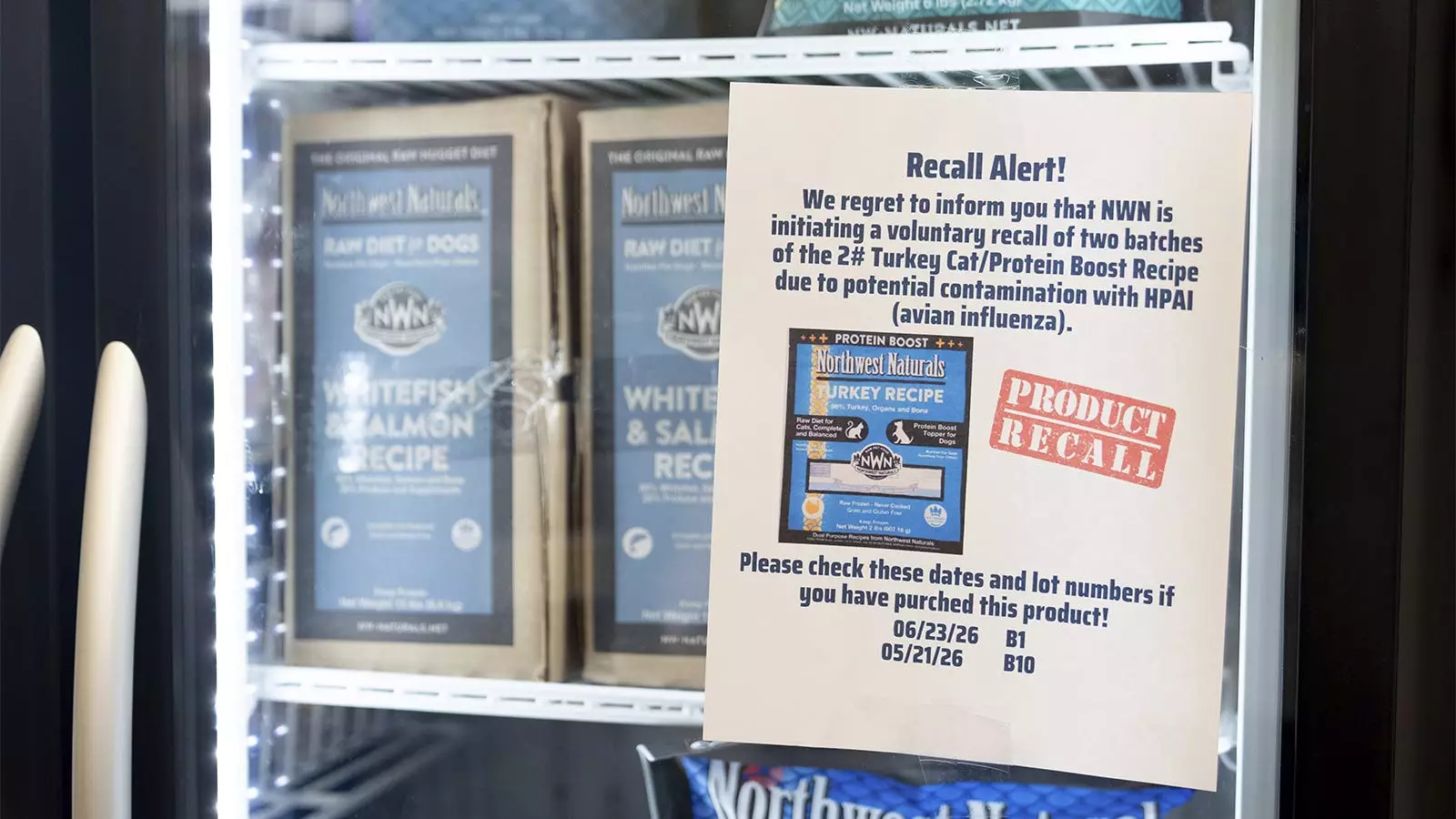Recent events have amplified concerns regarding avian influenza, particularly Type A H5N1, and its potential impact on household pets. The tragic death of a cat in Oregon, coupled with a related pet food recall, has spotlighted a growing issue: How does bird flu affect pets, and what measures can owners take to protect their animals? While bird flu has long circulated within wild bird populations, its reach into domestic animal realms raises significant questions, especially concerning feeding habits and safety protocols.
In early 2023, the bird flu virus made headlines after being identified in dairy livestock for the first time in the United States. Historically, it has caused sporadic illness in humans, primarily affecting those working in agriculture. Most significantly, when outbreaks occur, it is common for health officials to cull all birds from affected farms to halt the virus’s proliferation. This practice points to the serious nature of the virus, not just for farmed wildlife but also in its interaction with domestic pets like cats and dogs.
One critical concern that emerged from the Oregon incident involved the consumption of raw pet food, specifically frozen turkey products linked to the infected cat. The matching strains of the virus between the cat and the recalled food illustrate a crucial risk factor for pet owners who choose to feed their animals raw meat. Veterinarians, including Michael Q. Bailey from the American Veterinary Medical Association, emphasize cooking as a critical step in preventing the transmission of harmful pathogens. Heat treatment effectively eliminates the bird flu virus, alongside other potential contaminants that could threaten a pet’s health.
Moreover, the increased susceptibility of cats to bird flu has been observed, with recent outbreaks leading to infections in various feline populations, including domestic, feral, and even wild big cats. This susceptibility underscores the need for pet owners to reassess their feeding practices and consider the potential dangers of raw diets.
Given the characteristics of the virus and its impact on various animal species, pet owners should take decisive steps to safeguard their pets. Avoiding unpasteurized dairy products and raw meat is paramount, as both are recognized vectors for transmitting the virus. Furthermore, the incorporation of safety practices diminishes the chance of exposure; for instance, limiting cats’ outdoor access can significantly reduce their likelihood of interacting with infected wildlife.
Bailey advocates for a cautious approach: “Cats are natural hunters, and one of the animals they love to hunt are birds.” Monitoring their environment and preventing close encounters with potentially infected wildlife can minimize exposure risks. Owners should also practice hygiene after handling poultry or other animals to further mitigate risks connected with human-animal interaction.
Understanding how to recognize the signs of bird flu in pets is crucial for early detection and treatment. Symptoms in cats may manifest as a lack of appetite, pronounced lethargy, elevated body temperature, or unusual behavior changes, such as increased hiding or excessive sleeping. Additional indicators may include eye inflammation and discharge, respiratory distress, or in severe cases, neurological symptoms like tremors or seizures.
If owners observe these warning signs, it is imperative to seek veterinary assistance promptly, especially since early intervention can make a difference in outcomes for affected pets. In light of these circumstances, ensuring that the cat is isolated from individuals with weakened immune systems is another critical step.
The particular incident involving Northwest Naturals serves as a reminder of the vulnerabilities associated with commercial pet food. A voluntary recall was issued for their turkey-based frozen food products, which were distributed across several states and Canada, revealing how quickly the effects of an outbreak can ripple across the market. Pet owners are advised to stay informed about product recalls and throw away any potentially contaminated food. They should also reach out to retailers to obtain refunds where appropriate.
The avian flu outbreak has not only raised flags over poultry health but has also illuminated the need for vigilance in pet care. By taking proactive measures against feeding raw diets, avoiding exposure to infected wildlife, and being aware of potential symptoms, pet owners can safeguard their beloved animals from the risks posed by avian influenza.


Leave a Reply